Mexico P4G National Platform Launch Sets Foundation for Green Growth
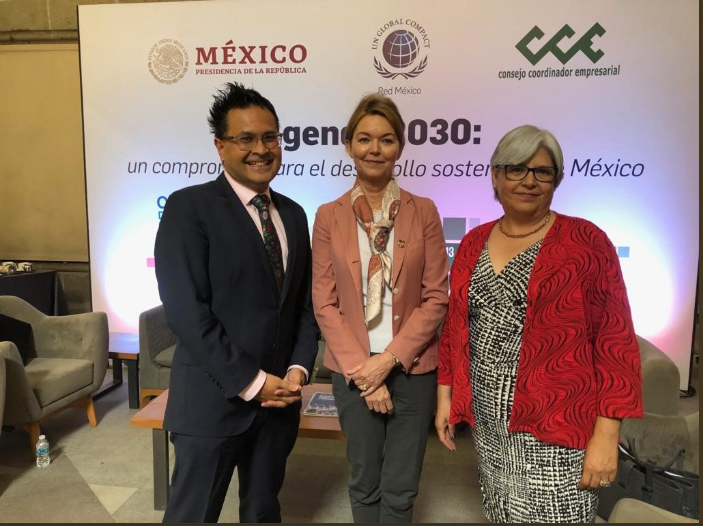
Subject
P4G Country Partners
Publication Date
2019-06-13
About
In Mexico last month, P4G Global Director Ian de Cruz joined representatives from the Ministries of Economy, Foreign Affairs, Environment and Natural Resources to launch the Mexican P4G National Platform on the sidelines of the 15-year anniversary of the UN Global Compact’s Mexican Local Network.
The launch took the form of a roundtable discussion during which representatives from P4G partner organizations Global Green Growth Institute (GGGI), International Finance Corporation (IFC), UN Global Compact and World Resources Institute (WRI) presented on how P4G’s vision aligns with their respective work. More than 70 participants from the business, public and civil society sectors – including representatives from the Zero Emission Bus Rapid-deployment Accelerator and the Building Efficiency Accelerator, two P4G 2018 scale-up partnerships -- then discussed opportunities for P4G growth and implementation across the country.
Earlier in the week, CEO and Executive Director of UN Global Compact and P4G Board Member Lise Kingo participated in a panel discussion with more than 700 corporate attendees. Her mention of P4G at this event positioned the initiative strategically as an innovative and viable approach to future growth. The panel followed a discussion where Kingo joined Alfonso Romo, the head of the Office of the President of Mexico, Economy Secretary Graciela Márquez Colín, and Antonio Molpeceres, the resident coordinator of the UN System to affirm future collaborations between the Compact, private businesses and the federal government.
“With the P4G association and the launch of the National Platform, both the Government of Mexico and the Ministry of Economy seek to send a firm signal about our intention to move towards an economy resistant to climate change, in collaboration with the private sector. This would do much to unlock investment in green growth, which in turn would decrease the burden on public resources. Given the magnitude of the challenges and the deadlines that must be met, partnerships to promote Mexico's transition are essential,” remarked Minister Márquez Colín.
Germán Muciño Guerrero of the Ministry of Economy and who helped organize the event, added, "The launch of the National P4G Platform in Mexico generated interest in the most important business associations to work hand in hand with civil associations and the government on strategic projects that promote green growth."
“That we were able to launch our National Platform and receive recognition around UN Global Compact’s 15-year celebration of their Local Network in Mexico was an excellent opportunity to expand P4G’s vision of collaboration with a broad network of leaders across industries,” said de Cruz. “We look forward to working with many organizations and champions in Mexico to accelerate partnerships and build green growth solutions.”
Already, the Zero Emission Bus Rapid-deployment Accelerator a 2018 scale-up partnership, is working to secure commitments from major bus and engine manufacturers to support the growth of electric buses in Mexico City and other major Latin American cities. The partnership facilitates public-private collaboration on vehicle specifications, charging strategies, pilot projects, financing and other steps necessary for fleet-wide deployment of zero emission buses.
The Cities Climate Action Project supported by the Building Efficiency Accelerator works with Mexican cities to support their policies and programs in energy efficiency. The partnership aims to scale across the Americas.
Moving ahead, Mexico’s deepened engagement with P4G through its National Platform will provide a strong foundation for existing and future partnership activities to take transformative action towards achieving climate commitments and the Sustainable Development Goals.
Partnership Awarded $600,000 for clean energy deployment in colombia and vietnam
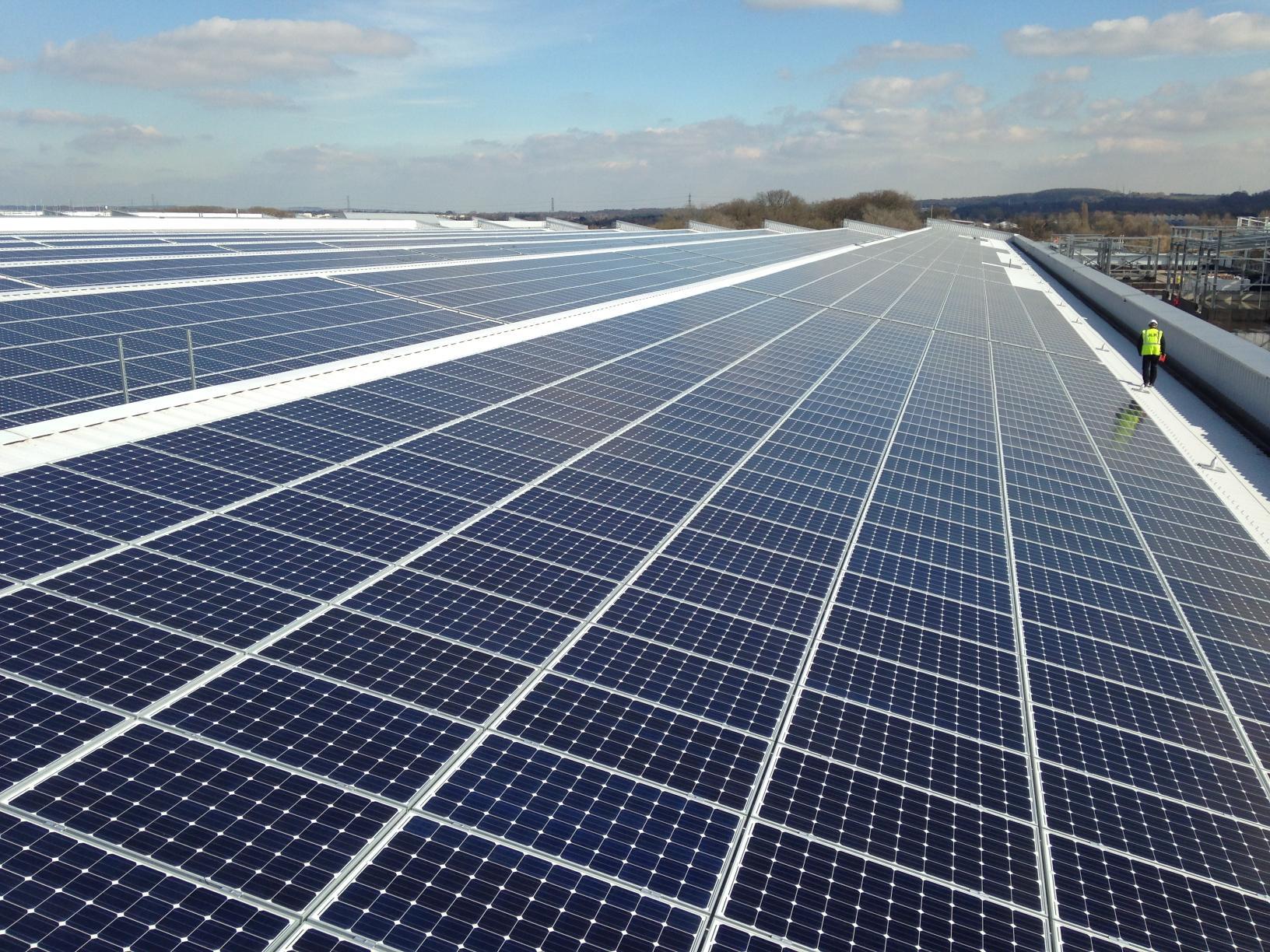
Subject
P4G Partnerships
Publication Date
2018-10-20
About
10/20/2018
Contact:
P4G: Frank Walter, frank.walter@p4gpartnerships.org
PARTNERSHIP AWARDED $600,000 FOR CLEAN ENERGY DEPLOYMENT IN COLOMBIA AND VIETNAM
COPENHAGEN (October 20, 2018) — The Clean Energy Investment Accelerator (CEIA) has been awarded $600,000 from a global sustainability competition to scale up commercial and industrial clean energy deployment in Colombia and Vietnam, as announced today at the Copenhagen P4G Summit.
As more companies strive to power their global operations with significant amounts of renewable energy, improved electricity purchasing options are increasingly needed around the world. CEIA is an innovative public-private partnership initiative that works to unlock clean energy investment across commercial and industrial sectors through targeted engagement in key countries.
Jointly led by the U.S. Department of Energy’s National Renewable Energy Laboratory, Allotrope Partners, and World Resources Institute, CEIA supports commercial and industrial power purchasers with project evaluation and procurement models, identifies and catalyzes aggregated deals to improve project financing opportunities and costs, and engages with the public sector to strengthen policies for improved clean energy investment environments.
“While the world has recorded significant gains in renewable energy use, we have to remember that more than three quarters of all power generated in the world is not from renewable energy,” said Ian de Cruz, global director of Partnering for Green Growth and the Global Goals 2030 (P4G), the initiative that is providing the funding and support to the CEIA partnership. “CEIA has a very strategic approach to accelerating the growth of renewable energy, especially in developing countries such as Colombia and Vietnam.”
CEIA is one of six partnerships selected by P4G to receive scale-up funding in 2018 and part of the 24 partnerships P4G is funding and/or facilitating in 2018 following a global competition that attracted 450 submissions from 80 countries.
“We are pleased to partner with P4G to deepen our work on unlocking renewable energy investments by manufacturers and other large energy users, developing approaches and models that can be replicated in additional markets and support both companies and countries in meeting shared clean energy deployment targets,” says Bethany Speer, NREL Senior Researcher and CEIA co-lead. “Commercial and industrial leaders in Vietnam have ambitions to power their facilities and operations with clean energy,” says Mr. Nguyen Quang Vinh, General Secretary of Vietnam Chamber of Commerce and Industry. “To help address the increasing demand from companies for improved clean energy choices, we look forward to collaborating with CEIA to raise awareness about the cost-competitiveness and new procurement models for clean energy in Vietnam.”
Over 150 of the world’s largest corporations have committed to 100 percent renewable electricity in the years ahead, including Unilever, H&M, Apple, Nike, P&G, and Anheuser-Busch InBev. Hundreds more have committed to set Science-Based Targets for emissions reduction. CEIA is working with these companies, their supply chain partners, and local businesses to help meet sustainable development goals in key emerging markets across the globe, including Vietnam, Colombia, Mexico, Indonesia, and the Philippines.
About P4G
P4G – Partnering for Green Growth and the Global Goals 2030 – is a new initiative with the ambition of becoming the world’s leading forum for developing concrete public-private partnerships at scale to deliver on the SDGs and the Paris Climate Agreement. The government of Denmark is providing USD 37 million in initial funding for P4G from 2018-2022. Besides the partner countries, non-profit organizations such as the Global Green Growth Institute, C40 Cities, World Economic Forum, and the World Resources Institute (which hosts the P4G Global Hub) are also P4G partners.
Minister Juan Carlos Jobet, Republic of Chile, Joins P4G Board
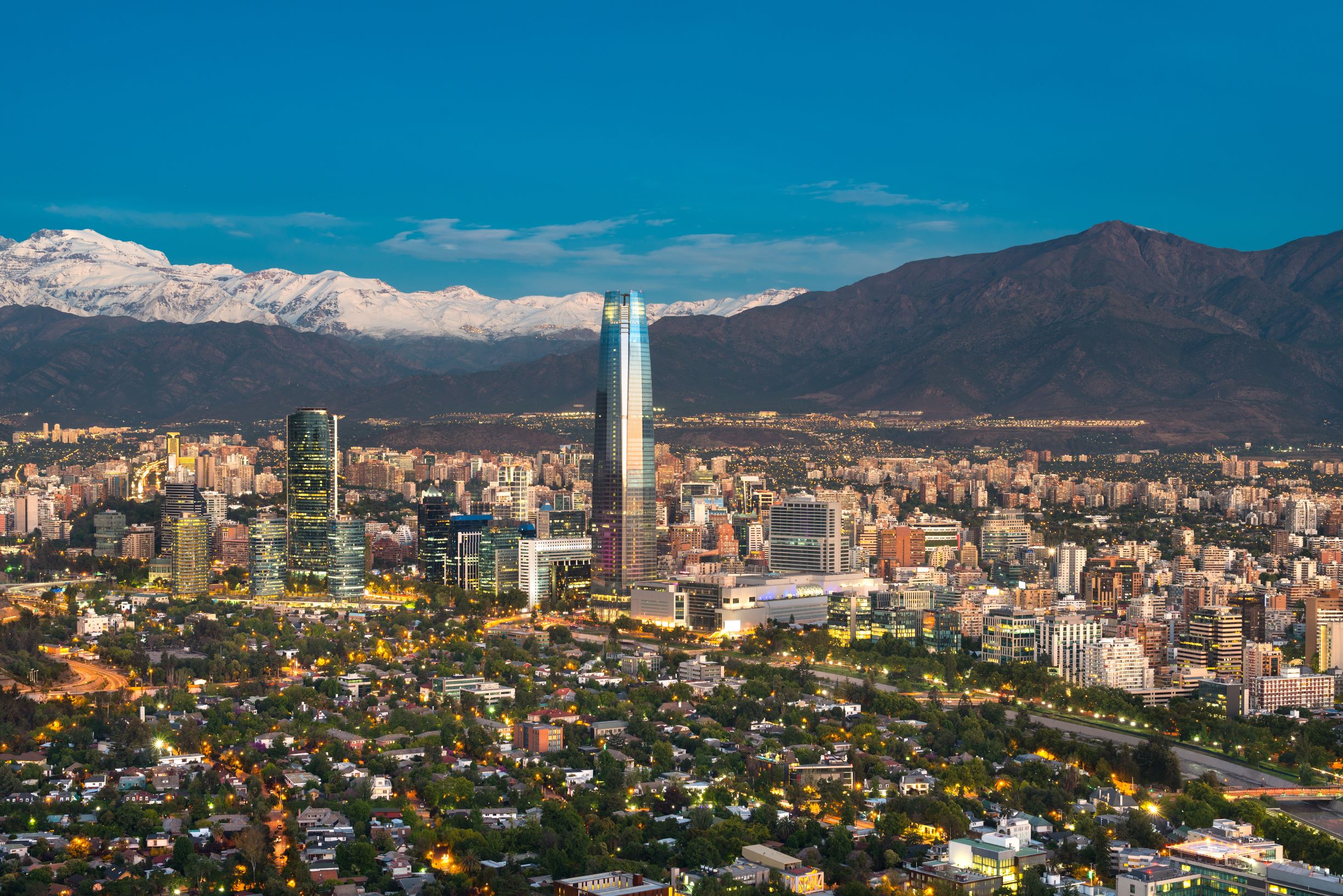
Subject
P4G Country Partners
Publication Date
2020-12-16
About
WASHINGTON – December 16, 2020 – P4G announced that Minister Juan Carlos Jobet, Ministry of Energy, Republic of Chile has joined its Board of Directors.
Minister Jobet brings a strong blend of private sector and policy experience to P4G’s Board. He began his career at a corporate finance consulting firm before joining the Chilean government and taking on a leading role in the country’s reconstruction after a devastating earthquake in 2010. After holding various positions in the government including being the Minister of Labor and Social Welfare, Minister Jobet was most recently responsible for managing the Infrastructure Fund, responsible for developing new public infrastructure like highways, trains and ports.
As Chile’s Minister of Energy since 2019, Minister Jobet’s mission is to lead Chile into a greener, decarbonized economy with an emphasis on renewable energy and achieving Chile’s zero emissions commitments. He is leading the country’s ambitious goals to produce the cheapest green hydrogen on the planet by 2030 and be among the top three exports of green hydrogen by 2040 and sees the critical need of partnerships with the private sector and investors to achieve these ambitious goals.
“I am honored to join the P4G Board. With its pipeline of innovative partnerships, global platform and engaged network, P4G can help accelerate Chile’s ambitions to be a leader in the green hydrogen industry and to be net zero emissions by 2050.” Minister Juan Carlos Jobet, Ministry of Energy, Republic of Chile.
From electric buses to the Getting to Zero Coalition partnership accelerating the shift to zero emissions vessels, fuels and infrastructure, P4G partnerships are well aligned with Chile’s core economic and climate priorities and provide models of change that can be replicated in the Latin America region and other P4G country partners.
“Minister Jobet is a global leader outlining a pathway for how a country can Build Back Better and Greener. Chile is a leading example of an emerging economy that sees the economic opportunities for trade, investment and jobs that also complement their ambitious climate change targets. We are privileged to have Minister Jobet’s breadth of expertise, vision and solutions he is leading to complement P4G’s work including in our emerging portfolio of partnerships on zero emissions transportation,” said P4G’s Global Director Ian de Cruz.
Learn more about current P4G Partnerships in Chile on electric buses, zero emissions shipping, building efficiency, and circular economy.
About Ministry of Energy, Republic of Chile
The Ministry of Energy is the governmental entity in charge of developing and coordinating, in a transparent and participative manner, the different plans, policies and norms for the development of Chile’s energy sector. Its mission is to create and maintain an energy sector in Chile that supports a thriving society and a healthy economy. The goal is to have an energy sector that is resilient to climate change by providing a diverse, balanced and sustainable electric grid that is reliable, affordable and accessible for all Chilean citizens. The Ministry of Chile seeks to collectively develop a path towards a clean, modern, and inclusive society for all.
About P4G: Pioneering Partnerships, Investing in Impact
P4G – Partnering for Green Growth and the Global Goals 2030 - is a global platform with a venture capital approach to accelerating market-based partnerships to build sustainable and resilient economies. P4G bridges the gap between development and investment agendas to deliver inclusive, transformative solutions to meet the Sustainable Development Goals and the Paris Climate Agreement. P4G mobilizes a global ecosystem of 12 partner countries and 6 organizational partners to unlock opportunities for more than 50+ partnerships working in five SDG areas: food and agriculture, water, energy, cities and circular economy.
P4G Awards Luncheon
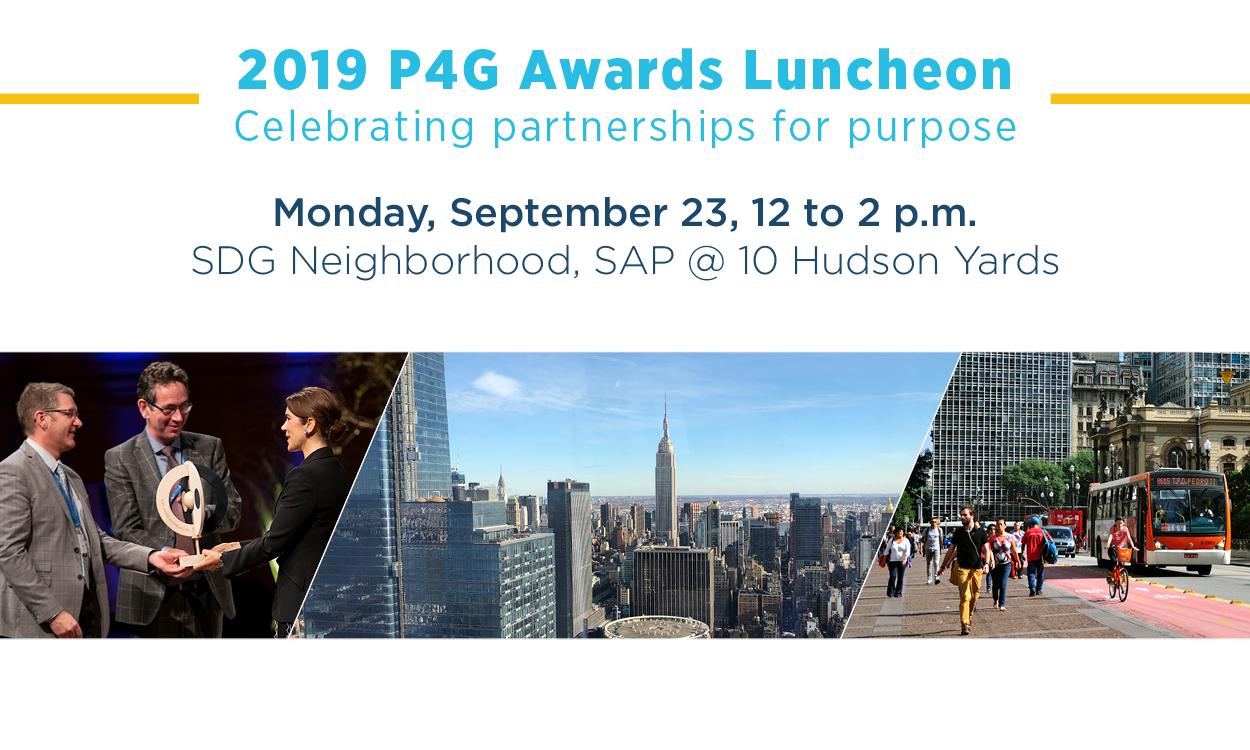
Subject
State-of-the-Art Partnership Awards
Publication Date
2019-09-23
The Netherlands Launches P4G National Platform, Providing Green Growth Leadership for Public-Private Partnerships Worldwide
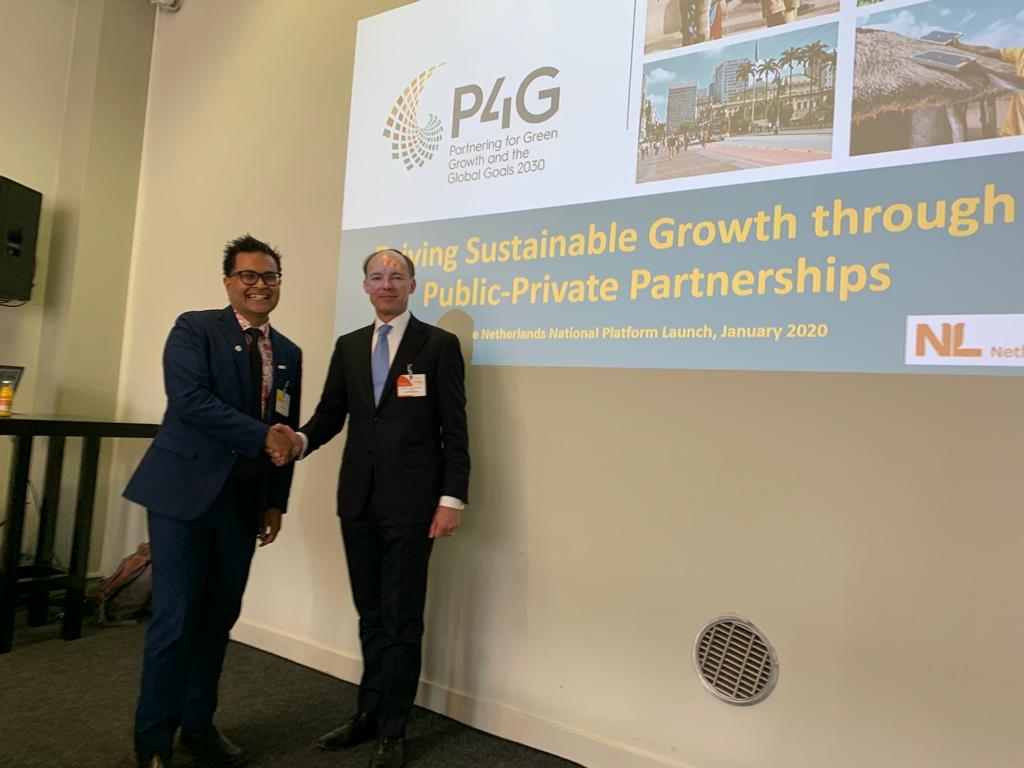
Subject
P4G Country Partners
Publication Date
2020-01-29
About
RELEASE
P4G Contact: Sangeetha Sarma, Head of Communications, sangeetha.sarma@p4gpartnerships.org
THE HAGUE – JANUARY 29, 2020 – Today, the Netherlands and the P4G (Partnering for Green Growth and the Global Goals 2030) Initiative announced the launch of the Dutch P4G National Platform. The platform, comprised of a network of government, business and civil society leaders, will expedite knowledge sharing for Dutch-led public-private partnerships pursuing green economic growth in communities and markets around the world.
The launch, hosted by the Ministry of Foreign Affairs of the Netherlands, featured a discussion with high-level leaders in Dutch business, industry and government. Their discussion focused for instance on the ways in which the Netherlands can apply learnings from its ambitious approach to climate action – a national goal of reducing greenhouse gas emissions by 49% by 2030, compared to 1990 levels – to accelerate partnership projects and green growth business models in developing economies around the world.
“This launch of the P4G National Platform in the Netherlands underlines our country’s commitment to help solve global challenges together,” said André Driessen, Director of the International Enterprise Department of the Ministry of Foreign Affairs of the Netherlands. “Through P4G and the SDGs, we see great opportunity to ensure that the global path toward a more sustainable economy is a collective effort, and that P4G partnerships become leading models that align governments, businesses and civil society behind overarching goals and swift action.”
Ian de Cruz, Global Director of P4G also commented, “Partnerships like Energise Africa and Sustainable Sourcing at Scale are emerging examples of the innovative approach and impact that corporates and civil society organisations in Netherlands can contribute to accelerating partnerships for sustainable development that are actually delivering on the ground. With the launch of its P4G National Platform, the Netherlands will be even better poised to work with P4G in catalyzing groundbreaking partnerships to accelerate their growth and replicate and scale these to economies on the global stage. We’re thankful to have the committed engagement of our Dutch partners led by the Ministry of Foreign Affairs to collaborate on our shared agenda in this decade of delivery and action.”
P4G currently funds three partnerships in OECD ODA-eligible countries that are led by Dutch partners:
Energise Africa: This 2018 P4G Start-Up partnership is the product of the joint efforts of Ethex and Lendahand, two of Europe’s leading online impact investing platforms. The partnership aims to demonstrate how UK-based retail impact investors can provide affordable finance for pioneering solar businesses operating in Africa to accelerate universal access to affordable, reliable, sustainable and renewable energy for all. In 1 year, the partnership has reached 10 countries, raised USD $15 million, created more than 5,000 jobs, provided 400,000 people with clean energy access, and mitigated an estimated 91,000 tons of CO2 emissions.
Sustainable Sourcing at Scale: This partnership, a 2019 P4G Scale-Up, is working to implement a Verified Sourcing Area (VSA) for commodity crops in India’s Andhra Pradesh state. Rather than verifying sustainability farm by farm, the model takes a regional approach, which reduces costs for sustainable agriculture and allows markets to buy large scale volumes with greater efficiency, transparency and traceability. This will position the VSA region in Andhra Pradesh to become a responsible source for commodities like chilis, cashews, cotton, turmeric and coffee where the opportunity for local value-add exists. Farmers have already acknowledged that the partnership has increased their income by 15 – 20%
PlusPlus: A 2019 P4G Scale-Up partnership, PlusPlus is designed to scale agri-food related small and mid-size businesses in developing countries that are considered too large for micro-credit and too small for mainstream banks. PlusPlus provides a solution and creates access to funding for this so-called “missing middle” by linking them to a crowd of investors. While many investors are active in financing agri-food businesses, few of them actively use capital from private and public investors mobilized by online crowdfunding to invest in businesses in developing countries. The impact investing platform PlusPlus will fill this current gap.
The 2020 P4G Seoul Summit will be held between June 28 – June 30 in South Korea. Hosted by President Moon Jae-In, the global summit will bring together Heads of State, CEOs and civil society leaders to advance and showcase transformative green growth partnerships.
ABOUT P4G
P4G – Partnering for Green Growth and the Global Goals 2030 – funds over 30 public-private partnerships with projects in developing countries. P4G is a collaborative partnership among 12 partner countries: Bangladesh, Chile, Colombia, Denmark, Ethiopia, Indonesia, Kenya, Mexico, the Netherlands, the Republic of Korea, South Africa and Vietnam. P4G is funded by the governments of Denmark and the Netherlands and hosted at World Resources Institute. Other partner organizations include C40 Cities, Global Green Growth Institute, International Finance Corporation, World Economic Forum and the United Nations Global Compact.
New Fund to Develop and Accelerate Partnerships for Sustainable Development and Growth
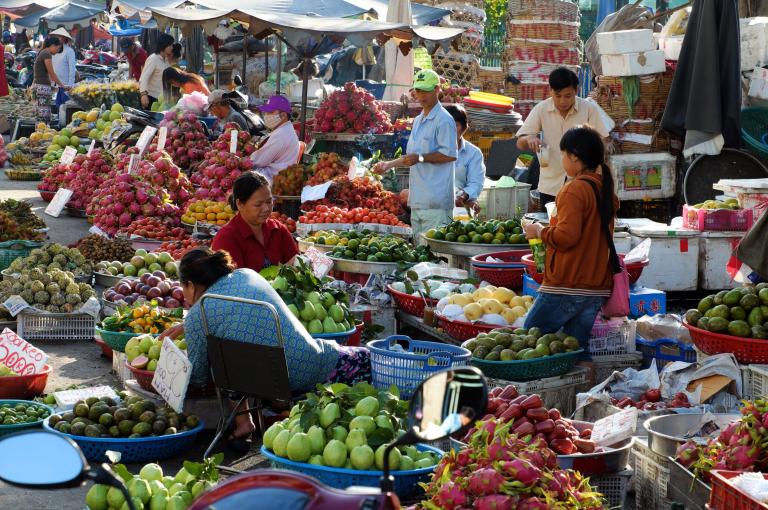
Subject
P4G Partnerships
Publication Date
2018-02-22
About
Do you have ideas that can lead to more sustainable development such as increasing access to food, water and clean energy? Are you already bringing together public and private partners in innovative ways to create new markets and business models? If so, your partnership may qualify for co-funding of up to $1 million and receive valuable facilitation support and recognition.
P4G, Partnering for Green Growth, a new initiative to identify and inspire partnerships that advance sustainable global growth, will provide funding of $1 million or $100,000 to winning partnerships. The P4G Partnership Fund has a total of up to $4 million available for selected partnerships in 2018. To qualify, applicants must consist of both commercial and non-commercial partners (such as governments and non-profit organizations).
“We seek breakthrough ideas from partnerships that can use P4G funding and support to demonstrate success and become profitable ventures,” said Ian de Cruz, P4G global director. “If the countries of the world are going to meet their sustainable development goals, we need these partnerships to succeed to stimulate even greater innovations in the future.”
To qualify, applicants should focus on one or more of the following areas: agriculture and food, water, energy, cities, and sustainable use of resources. Partnerships applying to the P4G funds must meet one or more of these characteristics:
- They build business alliances with communities and government.
- They rely on joint financing and innovative platforms.
- They develop agreed common standards for reporting data.
- They help develop access to capital markets through coalitions.
- They offer solutions that are ready for large-scale investment.
Partnerships can apply online to P4G through March 30, 2018. P4G will then evaluate the initial applications and notify those selected to complete a more detailed application process. Winners will be announced at the P4G Summit being held in Copenhagen in October.
February 22, 2018
New Funding Boosts Effort to Create Low-Carbon and Sustainable Special Economic Zones in Ethiopia and Kenya
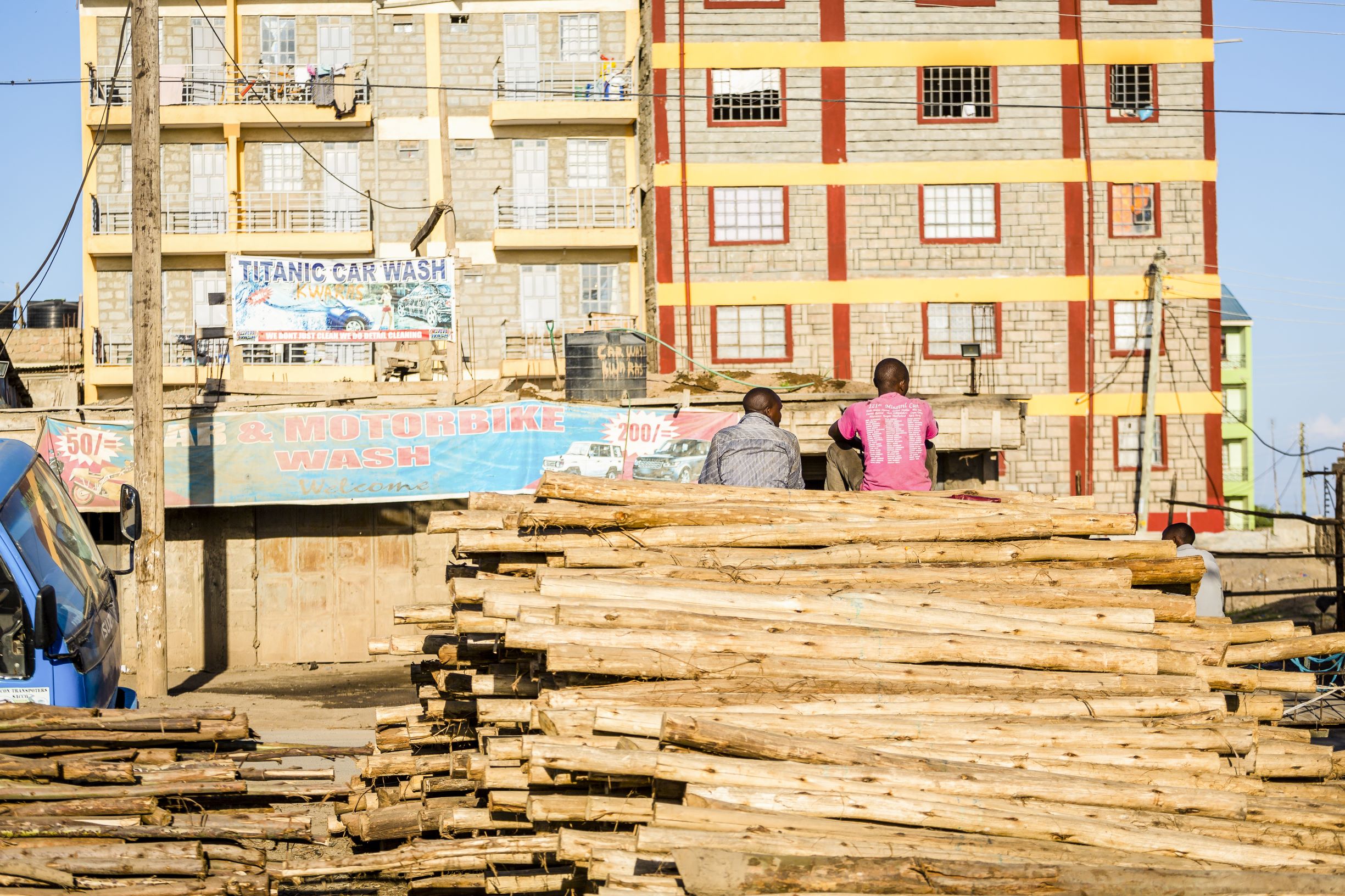
Subject
P4G Partnerships
Publication Date
2018-10-20
About
10/20/2018
Contacts:
P4G: Frank Walter, frank.walter@p4gpartnerships.org, 01-202-271-7727
Made in Africa Initiative: Matt Liu, matt.liu@madeinafricainitiative.com
SYSTEMIQ: Anne-Caroline Duplat, anne-caroline.duplat@systemiq.earth
LADOL: Cathy Kelly, pa@ladol.com
NEW FUNDING BOOSTS EFFORT TO CREATE LOW-CARBON AND SUSTAINABLE SPECIAL ECONOMIC ZONES IN ETHIOPIA AND KENYA
COPENHAGEN, 20 October 2018—Today, the Sustainable Special Economic Zone (SSEZ) Africa partnership receives a financial boost of USD$600,000 from the Partnering for Green Growth and the Global Goals 2030 (P4G) to create new sustainable special economic zones in Ethiopia and Kenya. The mission of SSEZ Africa is to transform special economic zones into vibrant hubs of low-carbon, sustainable and inclusive business.
“This partnership will demonstrate that industrial and trade zones designed for sustainability is a winning formula for long-term economic growth and public good,” said Ian de Cruz, Global Director of P4G, which awarded the funding at the inaugural Copenhagen P4G Summit. “The governments of Ethiopia and Kenya, as P4G partner countries, are committed to supporting innovative public-private partnerships to help them meet both their economic goals but also their sustainable development goals.”
While there are 5000 special economic zones in the world, which provide favorable conditions for industries and trade to flourish, few have been established with an underlying commitment to sustainability and contributing to the achievement of the Sustainable Development Goals, also known as the Global Goals—17 objectives to end poverty and inequality and address the urgent challenges of climate change and environmental degradation by 2030. The first such SSEZ is currently being set up in Lagos, Nigeria under the leadership of Amy Jadesimi, CEO and Managing Director of LADOL.
The Sustainable Special Economic Zone Africa partnership is led by Made in Africa Initiative, an UNDP supported non-governmental organization working to bring light manufacturing investment and jobs to Africa; LADOL, which operates a special economic zone in Nigeria; and SYSTEMIQ, a company set up to accelerate delivery of the SDGs across economic systems.
SSEZ Africa is one of six partnerships selected by P4G to receive scale-up funding and among 24 partnerships P4G is funding and/or facilitating in 2018 following a global competition that attracted 450 submissions from 80 countries.
SSEZ Africa will identify, develop and launch these zones in Ethiopia and Kenya by working with government leaders, investors and businesses. The zones are expected to incorporate sustainable development best practices of zero waste, waste-to-energy, reduced water and energy use. Long term, SSEZ Africa hopes to unlock 160,000 direct jobs and attract $8.6 billion in sustainable investment in Africa.
In Nigeria, LADOL operates a new, state-of-the-art Free Zone at Lagos Harbour to provide fully serviced facilities and heavy infrastructure designed and deployed to support the largest industrial projects in the world. LADOL has been working with SYSTEMIQ and other organizations to apply sustainability practices to the operation of this zone.
“With our work in Nigeria and the new SSEZ Africa partnership, we are creating a new course for development that is guided by sustainable principles,” said LADOL’s Amy Jadesimi. “A strong, thriving and just future for Africa is on the line and it is up to all of us—business, government and civil society to deliver.”
The Made in Africa Initiative has supported manufacturing and investment projects involving Chinese companies in over 10 countries in Africa - from Ethiopia, to Cote D'Ivoire and Rwanda. "China's manufacturing sector offers the opportunity for the rest of the world to capture an estimated 85 million jobs, and billions of dollars in investment. African countries need to capture this window of opportunities for their development" said Helen Hai, CEO of Made in Africa Initiative. "We are pleased and excited to win P4G support to help Kenya and Ethiopia do so in a sustainable manner, bolstering their green growth ambitions and setting a benchmark throughout the continent".
SYSTEMIQ will provide direct project management of this partnership, with an immediate focus on establishing agreements with the governments of Ethiopia and Kenya to identify and advance locations for the first sustainable economic zones in those countries. SYSTEMIQ is also expecting to collaborate with IDH, which led the Race to the Top Vietnam project that worked with apparel and footwear industry stakeholders to improve working conditions and advance more sustainable manufacturing processes. IDH is working to replicate this type of platform in Ethiopia, with an initial focus on the Hawassa Industrial Park.
“Our concept provides a toolkit and roadmap to create bright spots of sustainable industrialization, that can then be scaled and replicated both in other zones in Ethiopia and Kenya but also other countries,” said Martin Stuchtey, SYSTEMIQ Founder and Managing Partner. “We are convinced that public-private partnerships are a needed and valuable approach to meeting the UN Global Goals.”
About P4G
P4G – Partnering for Green Growth and the Global Goals 2030 – is a new initiative with the ambition of becoming the world’s leading forum for developing concrete public-private partnerships at scale to deliver on the SDGs and the Paris Climate Agreement. The government of Denmark is providing initial funding for P4G from 2018-2022. P4G partner countries include: Chile, Colombia, Ethiopia, Kenya, Mexico, the Netherlands, South Korea and Vietnam. P4G partner organizations include: the Global Green Growth Institute, C40 Cities, World Economic Forum, and the World Resources Institute (which hosts the P4G Global Hub).
About SYSTEMIQ
SYSTEMIQ aims to catalyse good disruptions in economic systems to speed achievement of the UN Global Goals and the Paris Agreement. With initiatives across the land use, material and energy systems, SYSTEMIQ builds coalitions to shape policies and business strategies, co-creates market-based solutions in partnership with the private and public sectors, and invests its own capital in early-stage ventures with the biggest potential to rapidly transform economic activity. To learn more, visit www.systemiq.earth.
P4G Partnership Announces New E-Bus Commitments from Manufacturers and Investors
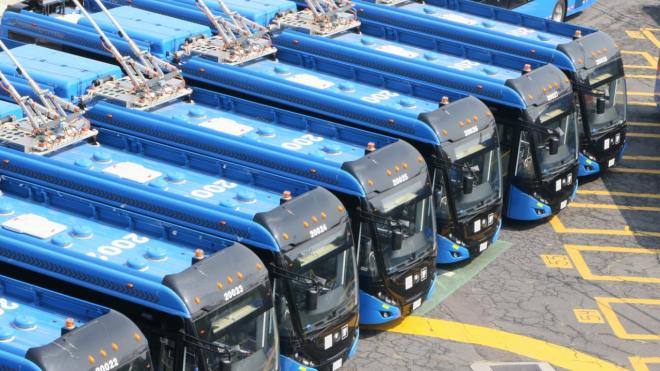
Country
Publication Date
2020-12-14
About
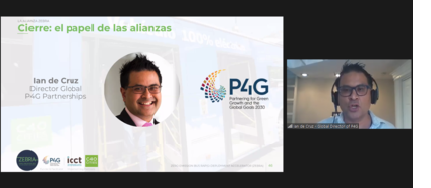 December 10, 2020 — P4G partnership Zero Emission Bus Rapid-deployment Accelerator announced commitments from top e-bus manufacturers and investors for innovative financing models to accelerate an e-bus transition in Latin America. The vast majority of commitments were made by Chinese manufacturers, and the ZEBRA partnership asked European and US manufacturers to join this electric mobility alliance as soon as possible.
December 10, 2020 — P4G partnership Zero Emission Bus Rapid-deployment Accelerator announced commitments from top e-bus manufacturers and investors for innovative financing models to accelerate an e-bus transition in Latin America. The vast majority of commitments were made by Chinese manufacturers, and the ZEBRA partnership asked European and US manufacturers to join this electric mobility alliance as soon as possible.
Monica Araya, the transport lead for the UNFCCC COP26 Climate Champions, opened the event by sharing her support for ZEBRA’s achievements and expanded on the Race to Zero campaign. She stressed the importance of collaboration between cities, investors, manufacturers and fleets to achieve these ambitious goals at speed and scale. ZEBRA also garnered praise from Roberto Capuano, Director of Metrobus, for the partnership’s assistance in a new Mexican law eliminating tariffs on the import of electric motor vehicles.
The event presented clear asks from manufacturers and a path forward for investors. Manufacturers pointed out that while they have the buses and the clients, the next step was getting credit guarantees from governments. During a discussion on investor risks, Asymetric Return Capital (ARC) representatives stepped in with the missive that the market is ready for this type of investment and innovative models like the ones they are working on can mitigate risk to encourage other investors to crowd in. Representatives from Mexico expressed a strong desire to make a shift to Mexican domestic e-bus manufacturing, while Chile discussed how to integrate the three distinct e-bus markets in the country to create a marketplace for reselling buses and batteries.
P4G Global Director Ian de Cruz delivered closing remarks for the session. He emphasized how market-based solutions like ZEBRA present a win-win for everyone in creating new jobs, access to new technology and more investment opportunities for impact. He spoke about the P4G Summit and COP26 as two major moments for the community to innovate together with P4G. He highlighted Latin America as the epicenter of this innovation and invited stakeholders in the e-bus transition to join P4G and deliver impact at speed and scale.
Sustainable Development Impact Summit
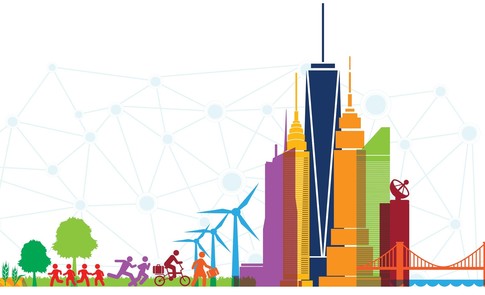
Publication Date
2018-09-25
Next Stop for Zero Emission Buses: Latin America
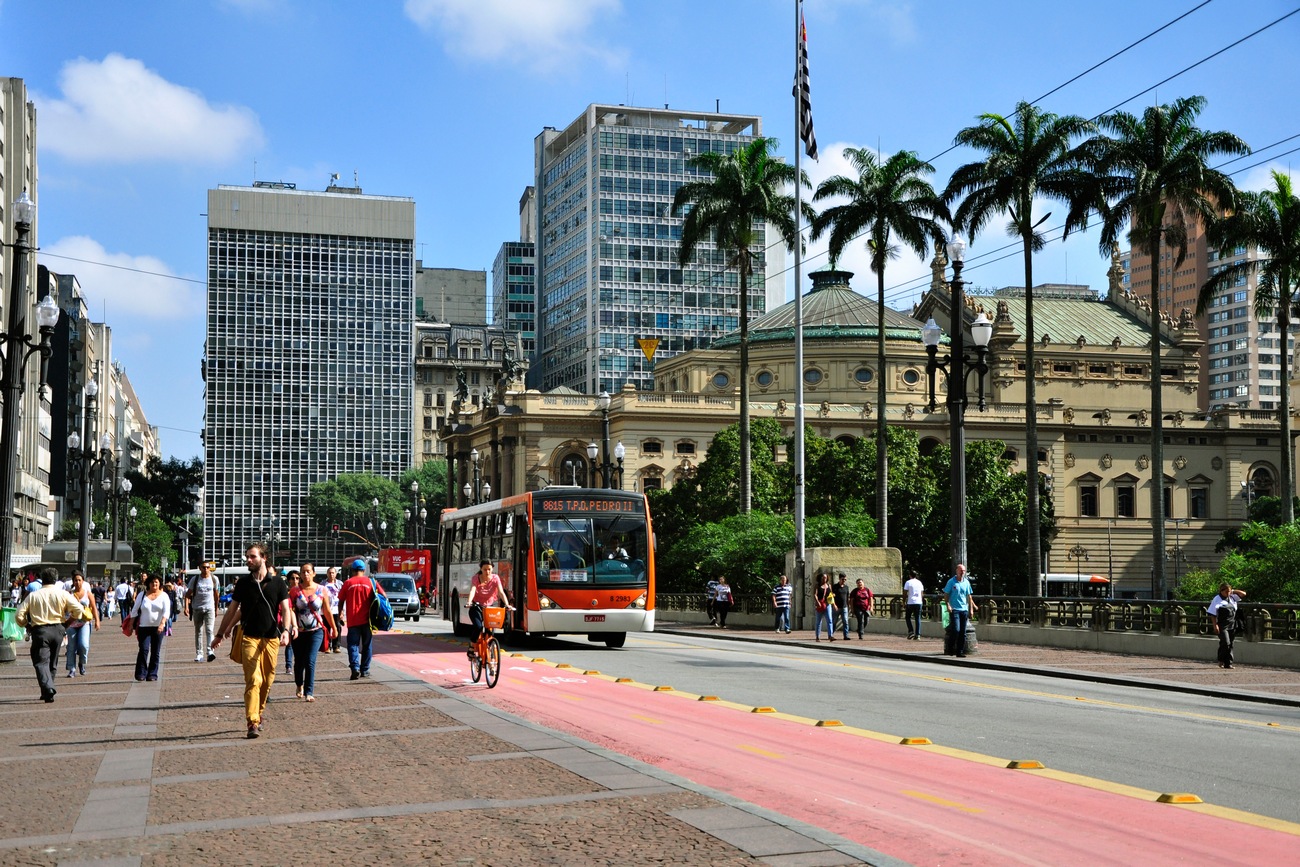
Subject
P4G Partnerships
Publication Date
2018-10-20
About
10/20/18
Contacts:
P4G: Frank Walter, frank.walter@p4gpartnerships.org, 01-202-271-7727
C40: Josh Harris, jharris@c40.org , +44 7739 021000
ICCT: Amy Smorodin, a.smorodin@theicct.org, 01-202-534-1613
NEXT STOP FOR ZERO EMISSION BUSES: LATIN AMERICA
New Partnership Aims to Mobilize Municipalities, Manufacturers and Financial Institutions
COPENHAGEN—20 October—A new partnership to speed the deployment of zero emission bus fleets in Latin American cities was awarded $900,000 in a global competition for innovative sustainability solutions announced today at the Copenhagen P4G Summit.
Led by C40 Cities (C40) and the International Council on Clean Transportation (ICCT), the Zero Emission Bus Rapid-deployment Accelerator (ZEBRA) will support all C40 cities and initially intends to work with Medellin, São Paulo and Mexico City in their efforts to plan, finance, and deploy electric bus fleets. Other partners include the World Resources Institute and Centro Mario Molina-Chile, who have been supporting Santiago’s current procurement program for electric buses, will also leverage lessons learned from this process as part of its contribution to this new partnership. The Inter-American Development Bank will also join as a partner.
Over the next two years, the ZEBRA partnership seeks to secure commitments from major bus and engine manufacturers to support the growth of electric buses in Latin America through collaboration with cities on vehicle specifications, charging strategies, pilot projects, financing and other steps necessary for fleet-wide deployment of zero emission buses. In addition, it will seek regional financial institutions to commit USD 1 billion in available financing to replace older diesel buses with electric bus purchases.
“This partnership promises to make the air cleaner for millions of people living and working in some Latin America’s largest cities, reduce greenhouse gas emissions contributing to global warming and provide a valuable roadmap for how cities globally can accelerate the deployment of zero emission buses in ways done in China and committed to in California,” said Ian de Cruz, global director of Partnering for Green Growth and the Global Goals 2030 (P4G), the initiative that is providing the funding and support to the ZEBRA partnership.
ZEBRA is one of six partnerships selected by P4G to receive scale-up funding and among 24 partnerships P4G is funding and/or facilitating in 2018 following a global competition that attracted 450 submissions from 80 countries.
Transportation is a predominant source of NOx emissions in Latin American cities, a major cause of air pollution, which contributes to premature deaths and illnesses such as asthma, especially in children. The transport sector also accounts for nearly a quarter of greenhouse gases globally.
“Medellin has set the goal of becoming the capital of electric mobility in Latin America," said Federico Gutiérrez, Mayor of Medellín. "We are convinced that joining the ZEBRA program will contribute greatly to making this dream come true and will help us build a city that guarantees well-being for its citizens. We are making ambitious efforts to promote sustainable means of transport and therefore, we are moving towards the replacement and purchase of electric buses for our BRT - Metroplús system and we have the firm intention that 100% of the new vehicles enrolled in the system will be electric."
To deliver on the highest goals of the Paris Agreement and keep global temperature rise within safe limits, requires bold and urgent action. For example, by 2030 every bus on the streets of the world’s biggest cities must be electric,” said Mark Watts, executive director C40 Cities. “This award from P4G and the ZEBRA partnership will help ensure that ambition becomes a reality in cities across Latin America.”
Global demand for electric buses has been growing steadily. Already 26 cities have committed to C40’s Green & Healthy Streets Declaration, committing to purchase only electric buses from 2025. There are more than 80,000 electric buses on the streets of these cities, demonstrating the huge potential market for manufacturers.
According to the ICCT, buses are just one percent of all vehicles on the road but 25 percent of emissions in the transport sector. “Few transit advocates realize more than 8 out of 10 new buses sold today do not meet world class vehicle emission standards,” said Drew Kodjak, executive director of ICCT. “New buses with dedicated electric drive engines not only deliver zero tailpipe emissions but emit dramatically lower carbon emissions per kilometer and, in most cases, can pay for themselves despite higher upfront cost."
About P4G
P4G – Partnering for Green Growth and the Global Goals 2030 – is a new initiative with the ambition of becoming the world’s leading forum for developing concrete public-private partnerships at scale to deliver on the SDGs and the Paris Climate Agreement. The government of Denmark is providing initial funding for P4G from 2018-2022. Besides the partner countries, non-profit organizations such as the Global Green Growth Institute, C40 Cities, World Economic Forum, and the World Resources Institute (which hosts the P4G Global Hub) are also P4G partners.
About C40
Around the world, C40 Cities connects 96 of the world’s greatest cities to take bold climate action, leading the way towards a healthier and more sustainable future. Representing 700+ million citizens and one quarter of the global economy, mayors of the C40 cities are committed to delivering on the most ambitious goals of the Paris Agreement at the local level, as well as to cleaning the air we breathe. The current chair of C40 is Mayor of Paris Anne Hidalgo; and three-term Mayor of New York City Michael R. Bloomberg serves as President of the Board. C40’s work is made possible by our three strategic funders: Bloomberg Philanthropies, Children’s Investment Fund Foundation (CIFF), and Realdania.
About ICCT
The International Council on Clean Transportation is an independent nonprofit organization founded to provide first-rate, unbiased research, and technical and scientific analysis to environmental regulators. Our mission is to improve the environmental performance and energy efficiency of road, marine, and air transportation, in order to benefit public health and mitigate climate change.
